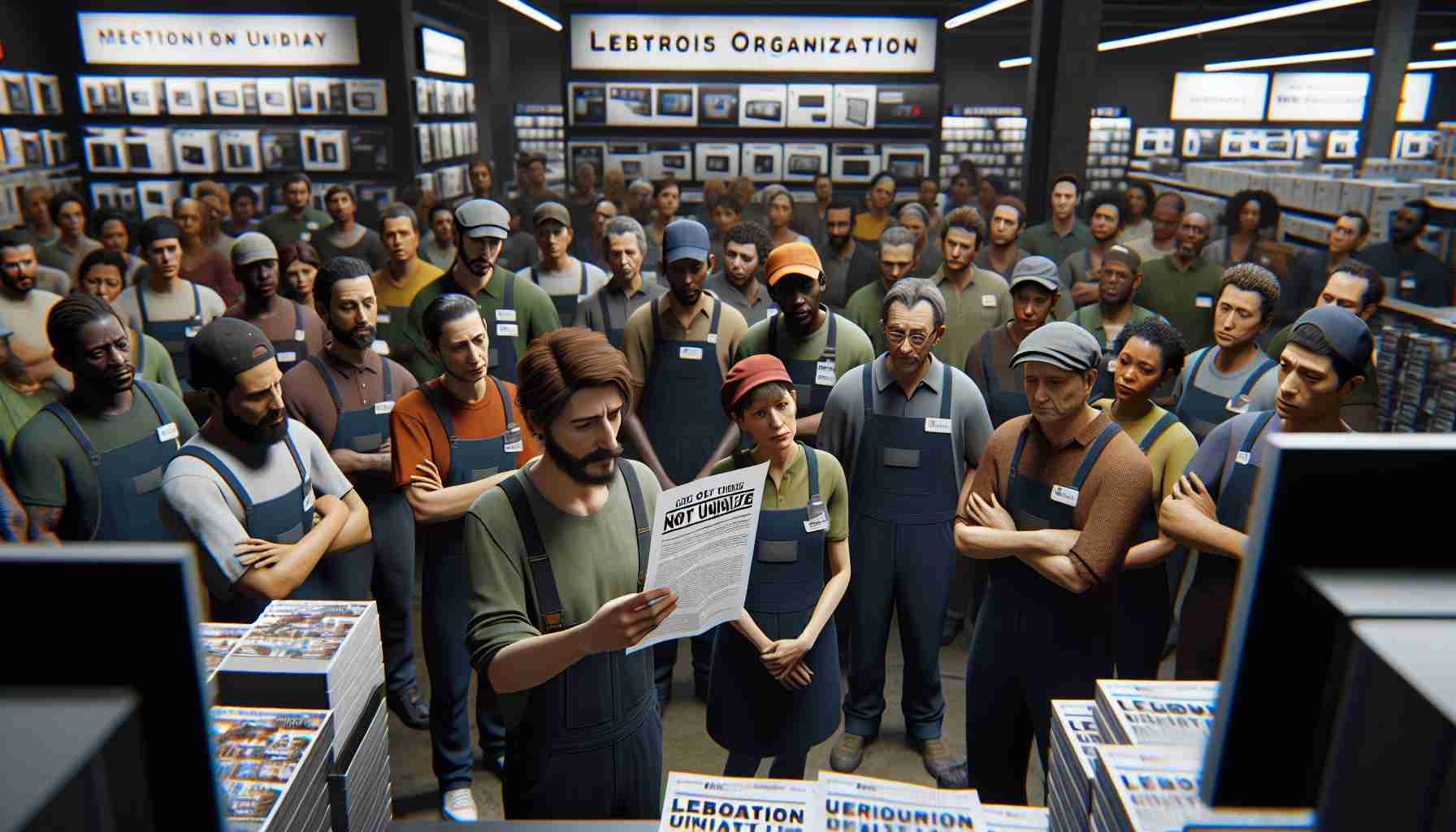Unionization Rejected by Apple Staff in New Jersey
In a notable voting event, employees at an Apple retail store in the luxurious enclave of Short Hills, New Jersey, have made a definitive decision to not pursue unionization. This decision was revealed during a ballot process overseen by the US National Labor Relations Board, which took place across two days, Friday and Saturday.
The Communications Workers of America (CWA) reported that Apple’s retail staff opted against forming a union, which marks a hindrance to unionization endeavors at one of the world’s largest tech companies. The union has pointed fingers at Apple, accusing the company of manipulative anti-union strategies that they say impacted the outcome of the election.
Apple Allegedly Utilized Coercion in Union Matters
The CWA expressed its disappointment, declaring that Apple’s approach to union efforts involved questionable tactics that overstepped attempts to let employees independently decide on unionizing. They insist that such a stance from Apple only accentuates the importance of workers having a substantive voice within their workplace.
Responding to these allegations, Apple has consistently denied any misbehavior on its part. Meanwhile, the NLRB recently determined that Apple did in fact break federal labor laws at its World Trade Center location in New York by interfering with union activities.
Contrasting Union Successes and Struggles at Apple and Beyond
A contrast can be seen in the unionization progress at Apple versus other corporations like Starbucks, which has seen over 400 of its cafes move towards unionization. While a couple of other Apple locations in Maryland and Oklahoma have successfully voted to unionize last year, many Apple employees across various stores remain in the early discussion phase.
These developments unfold alongside the backdrop of the NLRB’s recent decisions and as employees at the unionized Maryland Apple Store continue their efforts to negotiate a contract, even considering a potential strike action to further their cause.
Facts Relevant to the Topic:
– Unionization movements within the tech and retail sectors are gaining momentum in the United States as employees seek better working conditions, pay, and benefits.
– Apple Inc. is one of the most valuable companies in the world, and its stance towards unionization mirrors a broader trend of tech companies traditionally resisting labor unions.
– Apple’s retail employees, known as Geniuses, Specialists, or Creatives, often cite issues such as salary, unpredictable work hours, and the company’s culture as reasons for unionizing.
– The Short Hills, New Jersey Apple Store is situated in The Mall at Short Hills, a high-end shopping center catering to an affluent customer base. This demographic may have influenced employee considerations regarding unionizing.
– The National Labor Relations Board (NLRB) is an independent federal agency vested with the power to enforce US labor law in relation to collective bargaining and unfair labor practices.
Key Questions and Answers:
1. Why did the Apple Store employees in New Jersey vote against unionization?
While the exact reasons for the vote against unionization among the New Jersey store employees were not disclosed, it is often a complex mix of individual concerns over job security, fear of employer retaliation, lack of sufficient pro-union sentiment, or satisfaction with the current working conditions.
2. What implications could this vote have for union efforts in other Apple Stores?
The rejection of unionization in the affluent Short Hills, New Jersey store could potentially discourage efforts in other Apple stores, signaling challenges in building consensus among employees. However, each store’s climate is unique, and unionization efforts may continue to gain traction in other locations.
Key Challenges or Controversies:
– Apple has been accused of employing anti-union tactics, which can create a controversial atmosphere during unionization attempts.
– The challenge for unions lies in convincing retail employees that the benefits of collective bargaining outweigh any potential risks associated with unionizing.
– There is a broader issue of how large tech and retail corporations engage with employees on labor rights, with some accusing them of putting profits over the well-being of their workers.
Advantages and Disadvantages:
Advantages of Unionization:
– Improved working conditions and benefits for employees through collective bargaining.
– A stronger voice for workers within the company framework, potentially leading to more democratic work environments.
– It can lead to better job security and protection from unjust termination.
Disadvantages of Unionization:
– Potential for strained relations between employees and management.
– The process may lead to division among employees as opinions on unionization vary.
– Union dues and the possibility of strikes, which can disrupt income for employees and operations for the company.
It is pivotal to note the specific situation in the NLRB’s recent determination of Apple’s violation of federal labor laws at its World Trade Center location emphasizes the seriousness of the allegations against the company and may influence perceptions of unionization efforts at other stores. The negotiation and potentially strike actions at the Maryland store reflect the tense environment that can emerge during labor negotiations, demonstrating both the resolve of unionized workers and the difficulties they face in achieving their objectives.
